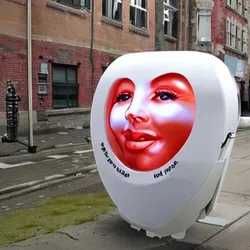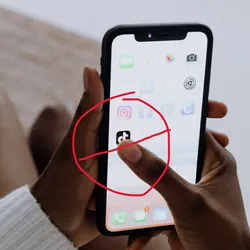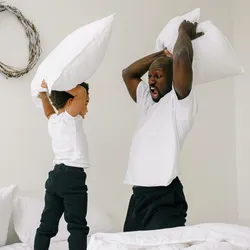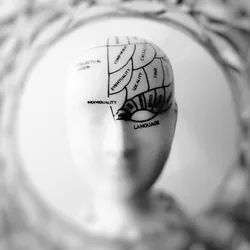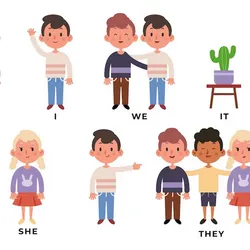
Level 1
Tesla won in court. A lady said her Tesla car was in a crash. Her jaw, teeth and face were hurt. She wanted $3 million. The court said no money for her. Tesla did not do anything wrong.
Level 2
Tesla won a court case after a woman sued them for damages. She claimed that her Tesla Model S crashed while on Autopilot and caused her injuries, including a fractured jaw and nerve damage to her face. The woman sought more than $3 million in damages from the company. However, the jury awarded zero damages, determining that the airbag did not fail to perform safely, and Tesla’s Autopilot feature did not fail. While Tesla’s Autopilot system has faced scrutiny, the verdict reinforces the importance of drivers understanding the limitations of autonomous driving technologies and following the manufacturer’s warnings and guidelines.
Full Story
In what could be seen as a major victory for Tesla, a California state court jury has handed the electric vehicle maker a sweeping win over allegations that its Autopilot feature had failed in what appeared to be the first trial related to a crash involving the partially automated driving software. The April 21 verdict came after Los Angeles resident Justine Hsu sued Tesla in 2020, claiming that her Tesla Model S had swerved into a curb while on Autopilot and that an airbag was deployed so violently that it fractured her jaw, knocked out teeth, and caused nerve damage to her face.
Hsu had alleged defects in the design of Autopilot and the airbag, seeking more than $3 million in damages. However, the jury awarded her zero damages after finding that the airbag did not fail to perform safely and that Tesla did not intentionally fail to disclose facts. The jury also concluded that Tesla’s Autopilot feature did not fail.
The verdict is significant for Tesla, which has been testing and rolling out its Autopilot and more advanced “Full Self-Driving (FSD)” system, which Chief Executive Elon Musk has touted as crucial to his company’s future but which has drawn regulatory and legal scrutiny. The outcome of this case could set a precedent for future lawsuits involving Tesla’s Autopilot system and other autonomous driving technologies.
Tesla has repeatedly emphasized that its Autopilot system does not make its vehicles fully autonomous and that drivers must remain alert and ready to take control at any time. The company also warns against using Autopilot on city streets, yet Hsu claimed that she had done so despite the warning in the user manual.
Despite the verdict in Tesla’s favor, the case highlights the ongoing debate surrounding the safety of autonomous driving systems. Critics argue that such systems can lull drivers into a false sense of security, leading them to take their hands off the wheel and focus on other tasks, while proponents argue that such systems can significantly reduce accidents caused by human error.
The jury’s decision appears to have been influenced by Tesla’s warning that its Autopilot system is not a self-piloted system and that driver distraction was to blame for the crash. The verdict underscores the importance of drivers understanding the limitations of autonomous driving technologies and following the manufacturer’s warnings and guidelines.
The case also highlights the need for clear regulations governing the use of autonomous driving features. As automakers continue to develop and roll out these technologies, it will be important to establish industry-wide standards to ensure the safe and responsible deployment of autonomous vehicles.
In the meantime, the outcome of this case is likely to have significant implications for Tesla and the broader automotive industry, particularly as more drivers become accustomed to using autonomous driving features. The verdict may also provide some reassurance to automakers and consumers alike, as it reinforces the idea that autonomous driving systems are still subject to human error and that drivers must remain vigilant and engaged at all times.
Tesla shares gained 1.3% to close at $165.08 on Friday after the verdict was announced. However, the emotional toll of the case was evident in Hsu’s reaction outside the courtroom, where she broke down in tears. Her attorney expressed disappointment with the result but did not comment further.
Overall, the verdict in this case serves as a reminder of the importance of responsible use of autonomous driving technologies and the need for clear guidelines and standards to ensure their safe deployment. It also highlights the ongoing debate surrounding the safety of such systems and the potential legal consequences of crashes involving autonomous vehicles. For now, however, Tesla can celebrate a major victory in court and focus on continuing to develop and improve its autonomous driving technologies.
Questions
What was the outcome of the court case filed against Tesla regarding its Autopilot feature?
How did the jury reach its decision on the case and what factors influenced their verdict?
What are the potential implications of this court case for Tesla and the automotive industry at large?
Do you think Tesla’s Autopilot system can be considered fully autonomous? Why or why not?
In your opinion, should there be clear regulations in place to govern the use of autonomous driving features? Why or why not?
Fill in the Blanks
attorney, verdict, implications, allegations, regulatory, precedent, scrutiny, lull, reassurance, curb, swerved, vigilant, guidelines, defects, significant, airbag, deployment
In what could be seen as a major victory for Tesla, a California state court jury has handed the electric vehicle maker a sweeping win over ________ that its Autopilot feature had failed in what appeared to be the first trial related to a crash involving the partially automated driving software.
The April 21 came after Los Angeles resident Justine Hsu sued Tesla in 2020, claiming that her Tesla Model S had ________ into a while on Autopilot and that an ________ was deployed so violently that it fractured her jaw, knocked out teeth, and caused nerve damage to her face.
Hsu had alleged ________ in the design of Autopilot and the airbag, seeking more than $3 million in damages.
The verdict is for Tesla, which has been testing and rolling out its Autopilot and more advanced “Full Self-Driving (FSD)” system, which Chief Executive Elon Musk has touted as crucial to his company’s future but which has drawn ________ and legal.
The outcome of this case could set a ________ for future lawsuits involving Tesla’s Autopilot system and other autonomous driving technologies.
Critics argue that such systems can ________ drivers into a false sense of security, leading them to take their hands off the wheel and focus on other tasks, while proponents argue that such systems can significantly reduce accidents caused by human error.
The verdict underscores the importance of drivers understanding the limitations of autonomous driving technologies and following the manufacturer’s warnings and ________.
As automakers continue to develop and roll out these technologies, it will be important to establish industry-wide standards to ensure the safe and responsible ________ of autonomous vehicles.
In the meantime, the outcome of this case is likely to have significant ________ for Tesla and the broader automotive industry, particularly as more drivers become accustomed to using autonomous driving features.
The verdict may also provide some ________ to automakers and consumers alike, as it reinforces the idea that autonomous driving systems are still subject to human error and that drivers must remain ________ and engaged at all times.
Her ________ expressed disappointment with the result but did not comment further.
Vocabulary
Autonomous driving systems: technology that allows a car to operate without human input or assistance.
Precedent: a legal decision, or related experience, that establishes a rule or principle for future cases.
Lull: to cause someone to feel calm or sleepy.
Vigilant: watchful, alert.
Deployment: the movement of something or someone from one place to another.
Reassurance: comfort or support provided to someone to ease their anxiety.
Regulatory: relating to an official organization responsible for overseeing and enforcing rules and regulations.
Scrutiny: critical observation or examination.
Defects: a fault or imperfection in something.
Guidelines: instructions or recommendations for how to complete a task.
Liability: legal responsibility for something.
Allegations: a claim or assertion that someone has done something illegal or wrong.
Significant: important or noteworthy.
Verdict: the decision reached at the end of a trial or legal case.
Industry-wide: affecting or involving an entire industry or group.
Implications: the possible consequences or effects of something.
Emotional toll: the mental and emotional impact of something.
Attorney: a lawyer who is legally appointed to act on behalf of someone in legal matters.
